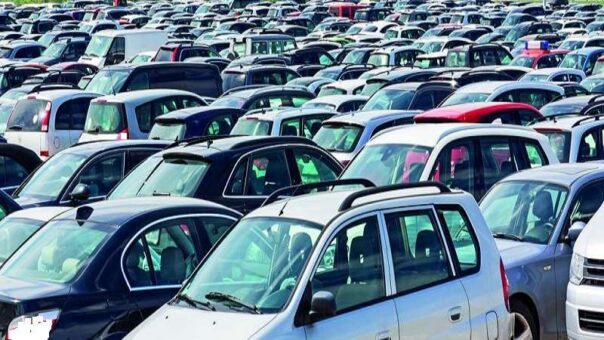KARACHI: Collection of motor vehicle tax in Pakistan has declined by 9 percent to Rs24.87 billion during first nine months (July – March) 2022-2023 owing to challenging economic conditions hampering the growth in automotive industry.
According official data released by the finance ministry the collection of motor vehicle tax was Rs27.28 billion during nine months of the last fiscal year.
Motor vehicle tax is a form of tax that is imposed on the ownership, registration, and use of motor vehicles. In Pakistan, this tax is an important source of revenue for the government and is collected by the provincial governments.
The motor vehicle tax in Pakistan varies from province to province and is determined by the type of vehicle, engine capacity, and age of the vehicle. In this article, we will take a closer look at the motor vehicle tax in Pakistan and how it affects vehicle owners.
The motor vehicle tax in Pakistan is collected by the Excise and Taxation Department of each province. The tax is levied at the time of registration of the vehicle and must be paid annually. The amount of tax varies depending on the type of vehicle, engine capacity, and age of the vehicle. For example, the tax on a motorcycle with an engine capacity of up to 125cc is different from the tax on a car with an engine capacity of 1300cc.
In addition to the tax on registration, there are also other taxes that vehicle owners must pay. These include the token tax, which is an annual tax that is paid to the government for the use of the vehicle on public roads. The token tax is based on the engine capacity of the vehicle and is higher for vehicles with larger engines.
Another tax that vehicle owners must pay is the withholding tax, which is a tax that is deducted by the government at the time of purchase of a new vehicle. The withholding tax is calculated as a percentage of the value of the vehicle and is higher for vehicles with a higher value.
The fall in collection of motor vehicle tax can be attributed to the massive decline in sales of locally assembled and import of motor cars.
According to recent data, the car sales in Pakistan during the first nine months of the fiscal year 2022-2023 (July – March) have been reported at 110,405 units, which is a significant decline of 46 percent compared to the same period last year. This decline can be primarily attributed to various factors such as the non-availability of Completely Knocked Down (CKD) units, escalating car prices, expensive auto financing, and low purchasing power of consumers.
One of the main reasons for the decline in car sales is the non-availability of CKDs due to the supply chain disruptions caused by the COVID-19 pandemic. As a result, many car manufacturers have been forced to reduce their production and sales. This has led to a shortage of new cars in the market, which has contributed to a decline in sales.
Another major factor is the escalating car prices. Over the past few months, the prices of cars in Pakistan have skyrocketed due to various reasons such as the increase in the prices of raw materials, the depreciation of the Pakistani rupee, and the imposition of new taxes and duties. This has made it difficult for consumers to afford new cars, which has led to a decline in sales.
Furthermore, the expensive auto financing options have also contributed to the decline in car sales. The high-interest rates and down payment requirements have made it difficult for consumers to purchase new cars. Additionally, the low purchasing power of consumers has also played a role in the decline in car sales. Due to the high inflation rates and the economic slowdown, many consumers have been forced to cut back on their spending, which has affected their ability to purchase new cars.
According to the data released by the finance ministry, the motor vehicle tax collection in Pakistan has witnessed a mixed trend during the first nine months of the current fiscal year.
The data shows that Punjab has recorded a 9.6 percent decline in motor vehicle tax collection to Rs14.58 billion, while Sindh has witnessed the highest fall of 10 percent to Rs8.28 billion in motor vehicle tax collection during the period under review.
Khyber Pakhtoonkhwa Province was the only province to record growth in the motor vehicle tax collection, witnessing 8 percent growth to Rs1.34 billion. The collection of motor vehicle tax by Balochistan witnessed a seven percent decline to Rs0.67 billion.
READ MORE: Impact of regulatory duty removal on used car prices in Pakistan
